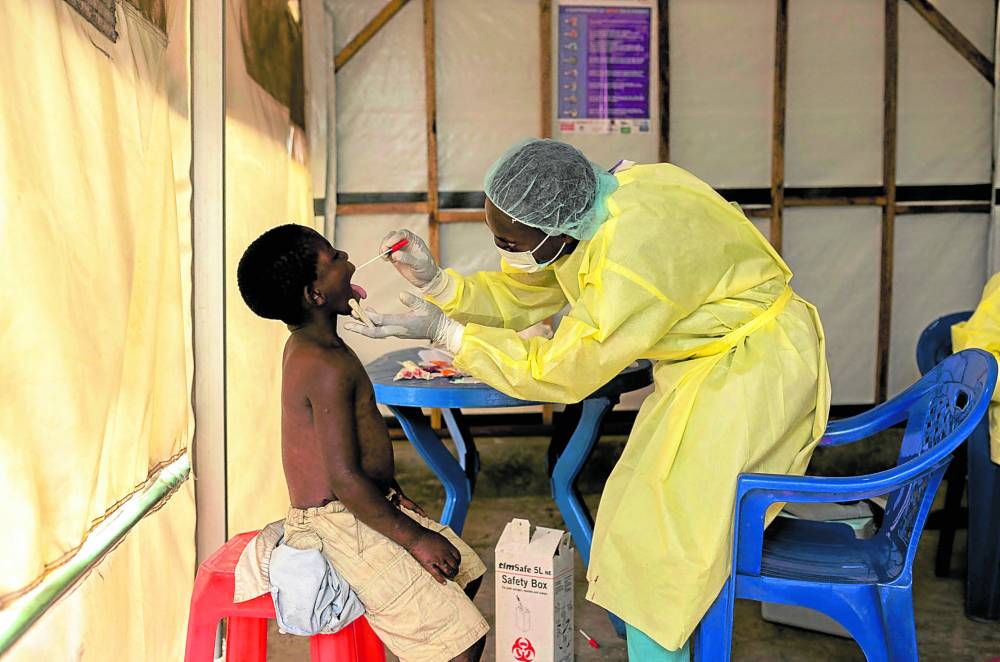Drug-resistant pathogens seen to kill 39M by 2050

PARIS—Infections of drug-resistant superbugs are projected to kill nearly 40 million people over the next 25 years, a global analysis predicted on Monday, as the researchers called for action to avoid this grim scenario.
Superbugs—strains of bacteria or pathogens that have become resistant to antibiotics, making them much harder to treat—have been recognized as a rising threat to global health.
The analysis has been billed as the first research to track the global impact of superbugs over time, and estimate what could happen next.
Yearly, the superbugs—also called antimicrobial resistance (AMR)—killed more than a million people across the world between 1990 and 2021, according to the study in The Lancet journal.
Under 5
Deaths among children under 5 from superbug infections are now much harder to treat.
And deaths of over-70s have surged by more than 80 percent over the last three decades, as the elderly became more vulnerable to infection.
Deaths from infections of MRSA, a type of antibiotic-resistant staph bacteria, doubled to 130,000 in 2021 from three decades earlier, the study said.
The researchers used modeling to estimate that the number of direct deaths from AMR would rise by 67 percent to reach nearly 2 million a year by 2050.
It will also play a role in 8.2 million more annual deaths, a jump of nearly 75 percent, according to the modeling.
‘Threat is growing’
Under this scenario, AMR will have directly killed 39 million people over the next quarter century, and contributed to a total of 169 million deaths, it added.
But less dire scenarios are also possible.
If the world works to improve care for severe infections and access to antimicrobial drugs, it could save the lives of 92 million people by 2050, the modeling suggested.
“These findings highlight that AMR has been a significant global health threat for decades and that this threat is growing,” study coauthor Mohsen Naghavi of the US Institute of Health Metrics said.
The researchers looked at 22 pathogens, 84 combinations of drugs and pathogens, and 11 infectious syndromes.
The study involved data from 520 million individual records across 204 countries and territories.
AFP is one of the world's three major news agencies, and the only European one. Its mission is to provide rapid, comprehensive, impartial and verified coverage of the news and issues that shape our daily lives.

















